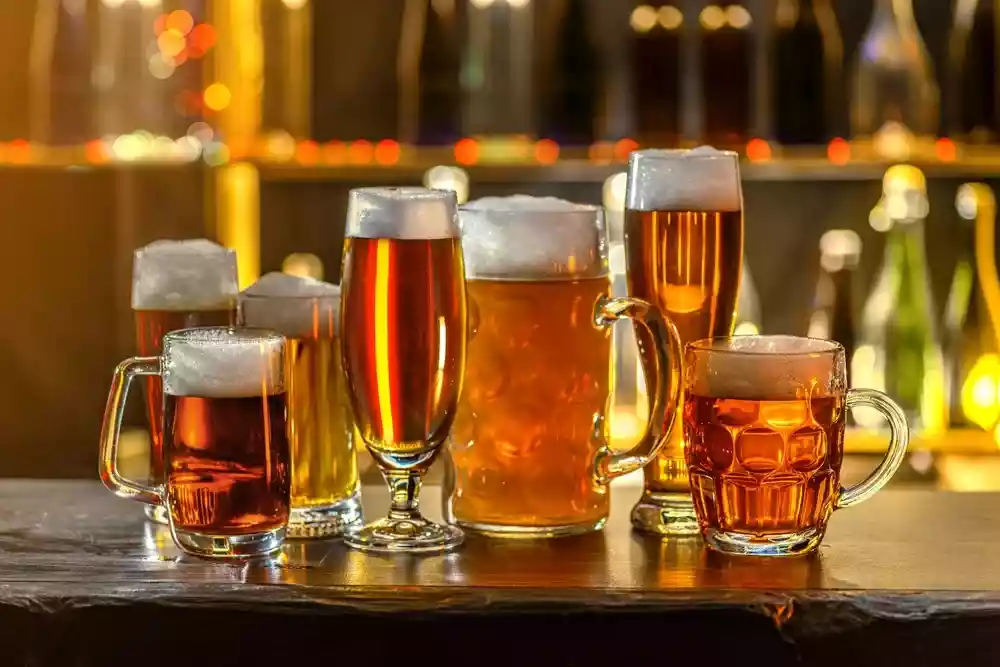
After more than 25 years of drinking alcohol, Percy Guwu (50) has had his fair share of happiness, sadness and as many incidents of ill health as there were celebrations of new life and good health, including boundless experiences of comedy and tears of joy while under the influence.
Ultimately, the father of three insists, the bottle has been good to him. It has taken him through “dark days”.
“I have been drinking for more than 25 years and for me it is hard to pick a specific reason why I want to drink daily, all I know is I enjoy it,” says Guwu.
“When I started drinking in the late 1990s, it was largely for social and leisure purposes but in the recent past, given the country's economic situation, alcohol has also become a poverty tonic and coping strategy during dark days.”
In Zimbabwe, alcohol, in its several forms and potency, has become one of the most bought liquid products for consumption.
Last year alone, the country’s boozers guzzled record amounts of lager beer, giving the country’s largest beverage maker, Delta Corporation, revenues in excess of US$713 million in the year, reports show.
In a segment breakdown of its half-year performance in July, 2023, Delta said their production had shot up with lager beer volumes growing by 12% for the first quarter while sorghum beer volumes jumped by 7% compared to the prior year.
Legitimate brewers attribute the growth of their sales to their top-notch products and marketing innovation.
- Currency crisis hits capital markets
- We are climbing out of hard lockdowns, says Delta boss
- Currency crisis hits capital markets
- We are climbing out of hard lockdowns, says Delta boss
Keep Reading
Those who make illicit brews, sold under the guise of whiskey, gin and vodka, are also making a killing in that leaves rampant alcohol addiction as the only explanation for the huge volumes of alcohol being consumed locally.
Local researchers point at deeper socio-economic factors influencing the insatiable thirst for a glass of booze.
“There is no way that these beer companies will not make money because if we go to the nearest beerhalls on any day you will see how they are full even by 9am,” says Guwu, a Glen Norah (Harare) resident on a Sunday morning before taking a swig of sorghum beer.
“There is no water or electricity and that is why we end up where there is beer.
“Imagine just sitting around at home facing poverty and there is no entertainment; you just end up drinking.”
Zimbabwe is grappling with a serious alcohol abuse problem, which now poses a big threat to the country’s development agenda.
According to a World Health Organisation (WHO) report released in 2019, Zimbabwe has the highest number of 15 to 19-year-olds engaging in heavy “episodic drinking” in Africa, with 70.7% of males and 55.5% of females participating.
Zimbabwe is an extremely young country, with 62% of the population below the age of 25 years.
Studies have attributed the increasing substance abuse among young people who make up the largest chunk of the country’s population of over 15 million to unemployment, to poverty and idleness, broken homes, social influence and stress among other issues.
“(In the medical field) an average of one beer a day is said to be safe for women and two for men, anything more than that may lead to a health disaster one day because it will be an overuse of alcohol,” says renowned medical practitioner, Johannes Marisa.
However, investigations by The Standard showed that many are taking, within hours, more alcohol than what their bodies can collectively handle in one week.
This is the epitome of alcoholism.
“Alcoholism is the most severe form of alcohol abuse and involves the inability to manage drinking habits,” Marisa said.
According to Marisa, the long term use of alcohol can result in a lot of serious health problems which include liver cirrhosis and flare ups in chronic conditions like hypertension, gout and arthritis.
“Alcohol can aggravate heart diseases, precipitate strokes and a lot of other digestive problems so it is also implicated in cancers of the throat, oesophagus and the stomach.
“It is something that people should take seriously,” he told The Standard.
However, if the rise in alcohol sales and high numbers at beer halls across the country are anything to go by, the medical message of cautious intake is falling on deaf ears.
The increase in diseases like hypertension and high blood pressure among young people aged between 18 and 24 years suggest that the effects have started to show.
At Mashwede night club, one of the popular night spots in the capital, a group of 13 young looking patrons blew an amount over US$3 000 on high-end alcohol on a recent Thursday night.
“Big-up to Showboy and his crew they have just gotten another round,” a disk-jockey shouted as Champagne showers sprayed into the air, followed by a toast as the youthful men and women drank the night away.
Such spectacles have become common in different drinking holes as young people partake in massive drinking habits.
“I cannot drink as much as these youngsters nowadays because they can take alcohol daily and throughout the day,” says Guwu who drinks about eight quarts (one contains 750ml) of his favorite lager on a good day.
But, whether one drinks to drown his or her sorrows like Guwu or to celebrate, health and wellness education in this regard is integral now more than ever.
“There is a lot that needs to be done in terms of health education and promotion because some think alcohol is there to relieve stress and fight depression among other things, but the long term consequences are not understood by a lot of people,” says Marisa.
A group of touts at Chitubu bus terminus in Glen Norah told this reporter that they find it more beneficial to buy alcohol than food as it “is cheap and helps us survive the unbearable conditions of our occupation”.
“If I get 50 US cents, I would rather buy a 200ml of whiskey than try making it double for a plate of sadza (the local staple),” said one of them.
Interestingly, while a packaging of illicit brew may carry a tag written “40% alcohol”, in reality the content could be much higher, making it dangerously intoxicating and addictive.
The effects are worse when one partakes on an empty tummy.
“The situation is so bad in high-density [and] rural areas. In most ghettos, this is a substitute for the local lagers,” says Wilson Box, director of the Zimbabwe Civil Liberties and Drug Network.
“The worst-case scenario is that drinkers go into a coma and never recover from it. They die silently, but painfully.”
As an old time drinker, Guwu worries not for himself but the youngsters he sometimes shares a cup with. “These ONES are in trouble because of this excessive drinking of this potent stuff”, he says.
For Marisa, who is at the forefront of the country’s health delivery system, the worries are different.
“It is very unfortunate that we have a poor health delivery system in our country, which cannot manage to deal with the complications of alcoholism,” he said.
“We have very limited rehabilitation facilities in our country and our health delivery system lacks essential drugs that are needed for the day to day running of institutions.
“It is unfortunate that people enjoy alcohol at very low costs but incur huge costs when it comes to the health delivery system.”
A citation on Alcohol Rehab Guide says alcohol abuse disorder “has various symptoms and can cause harmful side effects.”









